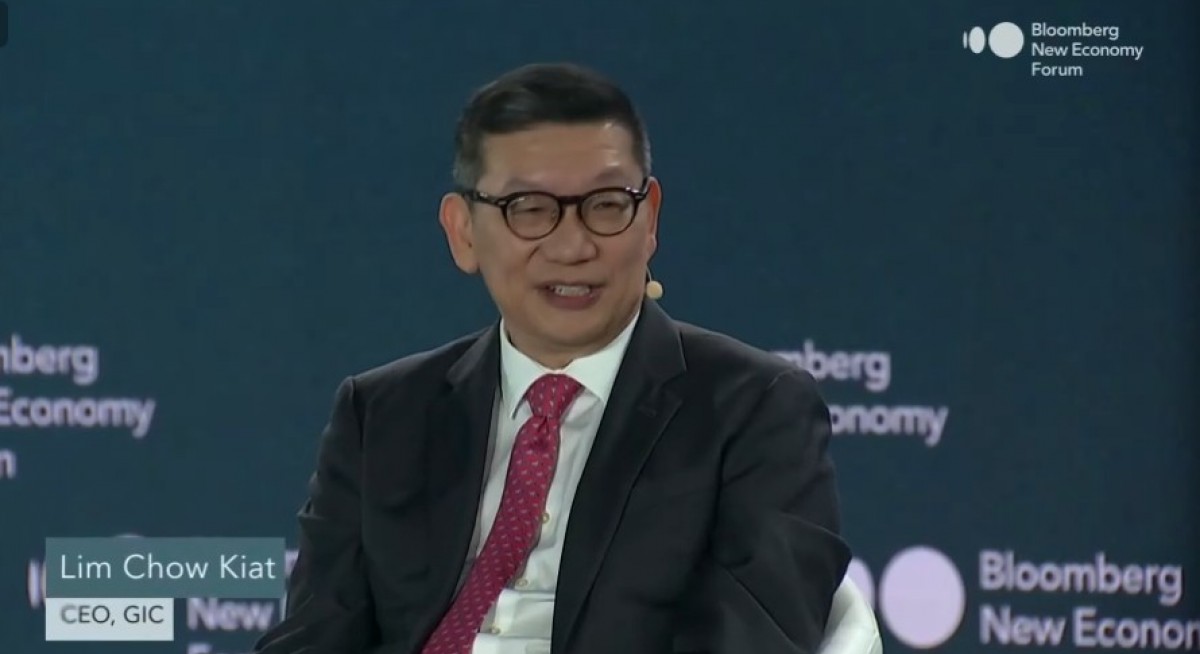That said, an overhaul of the world’s reserve currency will only come about if the “foundation of the US system cracks”, he adds. “We don’t really see that.”
In addition, “there aren’t clear alternatives” in the currency market to the greenback, says Lim. “Investors adjusting their currency exposure is quite a normal thing. If you have a very high exposure to a particular currency or country, adjusting it down 10% is not unusual. The good thing is that [the] financial market today allows for this kind of adjustment. So, I would say that there are enough levers for investors and other participants to adjust the[ir] position without causing a big problem.”
In response to a separate question, Lim says he worries about the increasing weaponisation of financial systems.
He acknowledges there is “a lot of temptation” for the world’s major economies to decouple, but says he is “quite encouraged” that the people in charge “have the wisdom to recognise that it might backfire”.
See also: Today’s ‘geopolitical climate change’ the result of ‘long-held, deep convictions’: Balakrishnan
Three levels of change
Speaking on the first panel at the start of Bloomberg’s three-day forum at Capella Singapore, Lim says many types of changes “have been accumulating for, at least, the last five to 10 years”.
He notes three levels of changes: cyclical — the ebb and flow of business; structural — such as demographic shifts; and foundational.
See also: HSBC CEO sees fragmented world with more strategic assets
Within the latter category, Lim sees three “forces” driving change: AI, geopolitics and climate change.
These lead to “fragmentation” and have “great implications” on capital allocation, says Lim. “The cost of doing business is going higher, and the cost of defence and other things will probably cause a bit of inflation[ary] pressure; that’s on the macro front.”
For businesses, Lim sees an “implication of incumbency versus start-ups” as technology rapidly improves. “Incumbents have great advantages, especially in the AI age, where you have data and customers already. The question is: Can an incumbent adapt quickly?”
Lim adds: “We are looking at that very, very closely as an investor, but also thinking about how managers or operators can add value.”
Here, Lim notes a “K-shaped divergence” — where big firms “look like [they] will get bigger” and tech-enabled companies enjoy an advantage over their less-savvy counterparts.
“That’s another kind of trend that, as capital allocator, we want to make sure that we put money on the right side,” he adds.
A public good
To stay ahead of Singapore and the region’s corporate and economic trends, click here for Latest Section
Lim says he is worried about how “realignments” in trade between the US and China will impact the global financial system — which he calls a “public good”.
“It’s a very difficult rewiring. Essentially, the Chinese need to increase their consumption [and] the Americans need to reduce their consumption, but that is a very difficult balance to achieve,” he adds. “Supply chain rewiring is very expensive, because we already have had this kind of global arrangement for so many years; many of the parts are already in place for decades. To try and shift that is going to be very costly and, actually, is very risky.”
Lim hopes that “there’s enough wisdom” among leaders to acknowledge that the global financial system is “in a way, a public good”. “Disruption in one part can send shock waves into the whole chain… Once you touch that financial plumbing, I think there will be a lot of unintended consequences, and the cost will be significantly higher than what we have seen on the trade side.”




